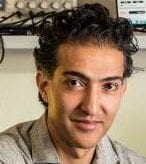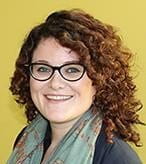
Bilal Haider, Ph.D.
Associate Professor
Bilal Haider’s research goal is to measure, manipulate, and decipher neural circuit activity underlying visual perception and visual attention. He received B.S. and M.S. degrees from the University of Illinois Urbana-Champaign, M. Phil. and Ph.D. degrees from Yale University, and postdoctoral training at University College London. His lab uses advanced electrical, optical, and behavioral technologies to reveal insights into the inner workings of the brain in real-time and with unprecedented resolution. By discovering mechanisms of information processing in neural circuits, his research provides critical steps toward understanding impairments in many neurological disorders such as schizophrenia, epilepsy, and autism spectrum disorder.

Annabelle C. Singer, Ph.D.
Associate Professor
The central goal of Dr. Singer’s research program is to understand how neural activity produces memories and spurs the brain’s immune system. Dr. Singer’s research integrates innovative behavioral, electrophysiological, and computational methods to identify and restore failures in neural activity that lead to memory impairment. Dr. Singer has established and continues to develop a new therapeutic approach to Alzheimer’s disease, novel forms of non-invasive stimulation, and new ways to manipulate the brain’s immune system. Additionally, using non-invasive approaches, she is translating her discoveries from rodents to develop radically new ways to treat diseases that affect memory in humans.

Chethan Pandarinath, Ph.D.
Associate Professor
Our work centers on understanding how the brain represents information and intention, and using this knowledge to develop high-performance, robust, and practical assistive devices for people with disabilities and neurological disorders. We take a dynamical systems approach to characterizing the activity of large populations of neurons, combined with rigorous systems engineering (signal processing, machine learning, and real-time systems) to advance the performance of brain-machine interfaces and neuromodulatory devices.

Eva Dyer, Ph.D.
Assistant Professor
Dyer’s research interests lie at the intersection of machine learning, optimization, and neuroscience. Her lab develops computational methods for discovering principles that govern the organization and structure of the brain, as well as methods for integrating multi-modal datasets to reveal the link between neural structure and function.